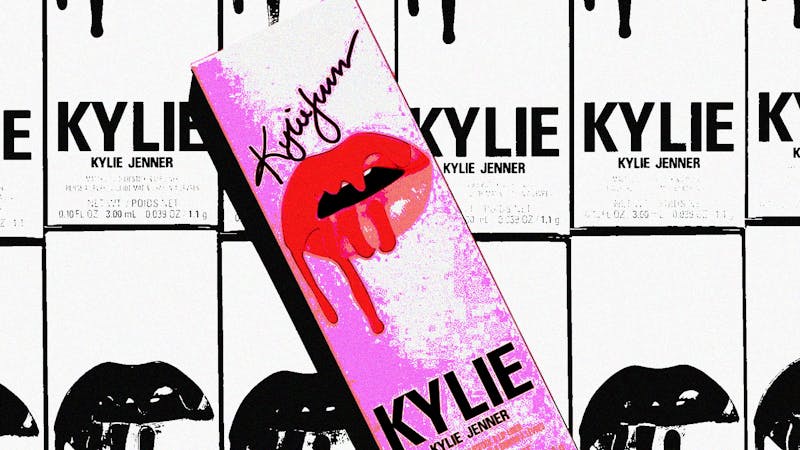I first dipped my toes into the world of beauty and skincare at the age of nine. As soon as my mom left to run errands, I snuck into her room and planted myself at her magical vanity. With the contents of her makeup bag laid out in front of me, Zoella’s iconic makeup tutorials playing on an iPad mini, and a luxurious black bullet of lipstick in hand, I meticulously applied the scarlet shade to my lips. Armed solely with practice in using Maybelline’s BabyLips, it’s no surprise that the final result was far from ideal—I looked more like Miranda Sings than Red–era Taylor Swift.
As a beauty–obsessed preteen in the 2010s, I quenched my thirst for makeup and skincare by secretly using my mom’s collection and subsisting on the three products I owned. For young girls today, the situation could not be more different.
The epidemic of 10–year–old girls crowding Sephoras worldwide has set the internet aflame. But why is this such an issue? According to a plethora of TikTok storytimes by Sephora employees and customers, these girls are not the easiest of customers: most of them, who come in search of expensive viral skin care products, often mistreat employees and leave stores in disarray. In a Vanity Fair article, a Sephora employee recounts young girls pumping foundations onto the floor and drawing on displays with lipstick.
An essential part of girlhood is the desire to be treated as equals to adults. The controversial “Sephora Gen–Alphas" seek to embody the “perfect” female influencers they idealize, from their dietary restrictions to their beauty routines.
In a 2021 study, the New York Times highlights how Instagram worsens body image issues for one in every three teenage girls. Ads and other online content glamorize disordered eating and excessive exercise, instilling a desire in women and girls to be “skinny.” By adding clear and smooth skin to our "things–women–must–aspire–to" list, body image issues in women and girls will only heighten.
Young girls look to emulate their favorite influencers from head to toe: they want to look like them, dress like them, and, of course, have the same airbrushed skin that they have. What better way to do this than buy the very products these influencers use? Some have referred to this fixation on skincare as dermorexia, and its repercussions can be disastrous. From their tweenage years, girls begin comparing themselves to the faces and bodies they see on social media, catalyzing a vicious cycle of deteriorating self–image and mental health.
Moreover, the physical effects of an over–reliance on skincare can be consequential. When it comes to skincare, the overarching mantra on TikTok preaches that more is better. Layering too many products, however, can do significant damage to the skin’s moisture barrier, which can worsen skin issues. By constantly buying and trying new skincare products, young girls may intensify any future skin problems.
As we watch a plethora of young girls showcase their 10–step skincare routines and post “What I Got For Christmas" hauls to thousands of online followers, we have to ask ourselves: does this signal the demise of the preteen phase? The preteen years mark a critical moment of transformation in a young person’s life. My preteen self was obsessive, chaotic, and weird (I, for one, had an entire diary dedicated to One Direction, with every fact I could find about them, from the exact minute they were born to their blood types). I wore hideous outfits to later cringe at, filled photo albums with embarrassing selfies, and tried so hard to recreate Cara Delevingne’s heavy brow look. However, after all this time, I wouldn’t be the person I am today without my pre–teenage years. They gave me space and time to grow into the best version of myself (I threw my 1D diary away, I promise).
It is no secret that the preteens of 2024 have strayed from boy band obsessions and Rainbow Loom addictions. While it’s jarring to see a 10–year–old girl applying Drunk Elephant moisturizer in her neon pink bedroom, this is no laughing matter. Just like me, she deserves the time to enjoy her defining preteen years (even the awkward moments); the burden of obsessing over her body or skin will only weigh her down.






